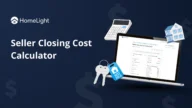Who Pays Realtor Fees in Florida?
- Published on
- 6 min read
-
 Richard Haddad Executive EditorClose
Richard Haddad Executive EditorClose Richard Haddad Executive Editor
Richard Haddad Executive EditorRichard Haddad is the executive editor of HomeLight.com. He works with an experienced content team that oversees the company’s blog featuring in-depth articles about the home buying and selling process, homeownership news, home care and design tips, and related real estate trends. Previously, he served as an editor and content producer for World Company, Gannett, and Western News & Info, where he also served as news director and director of internet operations.
If you’re selling a home in Florida, you may be asking: Who pays Realtor fees in Florida? This question has been in the spotlight since last year’s rule changes tied to a landmark court settlement involving the National Association of Realtors (NAR).
Under new rules that went into effect in August 2024, home sellers are no longer automatically expected to pay the buyer’s agent, breaking with a 100-year-old tradition. But has the NAR settlement really changed the way things work in the Sunshine State?
In this post, we’ll explain who typically pays Realtor fees in Florida, how commissions work under the new rules, and when it might make sense to cover the buyer’s agent costs. We’ll also share a Florida-specific commission calculator so you can estimate your costs and weigh what Realtor fees you’re willing to pay.
Who pays Realtor fees in Florida?
While the NAR settlement opened the door for buyers to pay their own agents, that shift hasn’t fully happened — in Florida or nationwide. According to a recent HomeLight survey of top agents, 92% say sellers are still covering the buyer’s agent commission.
Why? Florida’s housing market has pockets of active competition, but it’s also been affected by higher mortgage rates and affordability challenges. Offering to pay the buyer’s agent commission — and sometimes other concessions — is still a proven way to attract more offers in a slow market.
In practice, most Florida sellers continue to offer buyer’s agent compensation, especially in situations where:
- Higher mortgage rates have cooled buyer demand
- Buyers are stretching to cover closing costs and down payments
- Agents caution that skipping this cost could reduce buyer interest
The bottom line: While the NAR settlement rule changes provide more transparency and added flexibility, the prevailing advice from experienced Florida agents is simple: If you want to get your home sold in a market filled with hesitant buyers, offer to pay their agent fees.
Florida real estate agent commission calculator
Wondering how much combined Realtor fees could cost you in Florida? Or what your costs might look like if you choose not to offer a buyer’s agent commission? Use our Florida Real Estate Commission Calculator to compare different scenarios based on your sale price and negotiated rates.
Do sellers have to pay a buyer’s agent fees in Florida?
Short answer: no, but as our nationwide agent survey revealed, most still do. Here’s why many Florida sellers continue to cover this cost:
- More buyer interest: Most buyers in Florida work with agents. If their agent isn’t being paid by the seller, buyers may skip the listing or factor the commission into their offer price.
- Stronger negotiating position: Covering the buyer’s agent fee can make your home more appealing, leading to more serious offers or even multiple bids.
- Market realities: In our 2025 survey, agents reported that offering a buyer’s agent commission and other incentives is often necessary to close deals in today’s high-rate environment.
While you have the option to decline, it’s important to weigh how it could impact your home’s visibility and time on market.
Can you negotiate Realtor fees in Florida?
Yes. In Florida, real estate commissions are fully negotiable. That was true before the NAR settlement, and it remains true today. Whether you’re discussing fees with a listing agent or deciding what to offer a buyer’s agent, you have options:
- Negotiate a lower total commission rate: Some agents may accept a reduced rate, especially for high-priced homes or in competitive markets like Miami, Tampa, or Orlando.
- Adjust the commission split: You can propose a different percentage split or only cover your listing agent’s side.
- Tie commission to performance: For example, agree to a higher rate if the home sells above your target price and a lower rate if it sells below.
- Consider flat-fee or limited-service options: Some Florida brokerages offer à la carte services at lower rates for experienced sellers.
That said, remember that the right agent can often net you more proceeds, even if their commission is higher. With effective marketing, pricing expertise, and polished negotiating skills, a top agent can typically more than pay for their fees, allowing you to have a much better (and profitable) selling experience.
Additional free tools to help you plan your Florida home sale:
- Home Value Estimator
- Net Proceeds Calculator
- Best Time to Sell Calculator
- Recently sold Florida homes
What other concessions help sell a home in Florida?
If you decide not to pay the buyer’s agent commission — or you want to make your listing more competitive — seller concessions can be another way to sweeten the deal for potential buyers. Common incentives in Florida include:
- Closing cost credits: Covering part of the buyer’s closing costs can ease their upfront expenses.
- Interest rate buydowns: In a high-rate market, helping to lower the buyer’s mortgage rate for the first year or two can be appealing.
- Repair credits: Instead of making all repairs, offer a credit so the buyer can handle them after closing.
- Home warranties: A home warranty covering the first year can provide peace of mind, especially for older homes.
According to our survey, the top concessions sellers are offering include repair credits (52%), closing cost help (50%), and interest rate buydowns (21%). In Florida’s competitive but cost-sensitive market, these incentives — combined with a fair buyer’s agent commission — can help your home sell faster.
In Florida and the South Atlantic region, 87% of surveyed top agents reported price cuts in their markets, indicating that sellers need to be prepared to offer incentives and negotiate to close a deal.
Why top Florida agents can still net you more
With more flexibility around commission payments, it’s tempting to focus on lowering Reator fees. But in real estate, your bottom line depends on both what you pay and how much you sell for.
HomeLight data shows that the top 5% of agents sell homes for up to 10% more than average agents. In Florida, a top-performing local agent can help you:
- Understand your local market norms for buyer agent fees
- Decide what level of commission makes sense for your situation
- Evaluate offers and concessions in the context of local demand
- Guide you through Florida-specific market trends and regulations
The right Florida agent will help you gain a clearer picture of what your home is worth and what you can expect to net, even if you’re offering to pay both sides of the commission.
Commission rules change, but strategy still matters
The commission rules may have changed, but Florida’s real estate fundamentals remain the same: Buyers want representation, and sellers want strong offers. Crafting a smart commission strategy starts with working with an experienced local agent who can position your home to sell for the best possible price.
HomeLight’s free Agent Match tool analyzes over 27 million transactions and thousands of reviews to connect you with top-performing Florida agents based on your needs. Whether you choose to pay the buyer’s agent commission or explore alternatives, your ultimate goal is the same — a smooth, successful sale.
HomeLight is here to help. See our Florida Seller Resource Center for more expert tips and resources.
Header Image Source: (Nick Agee / Unsplash)





